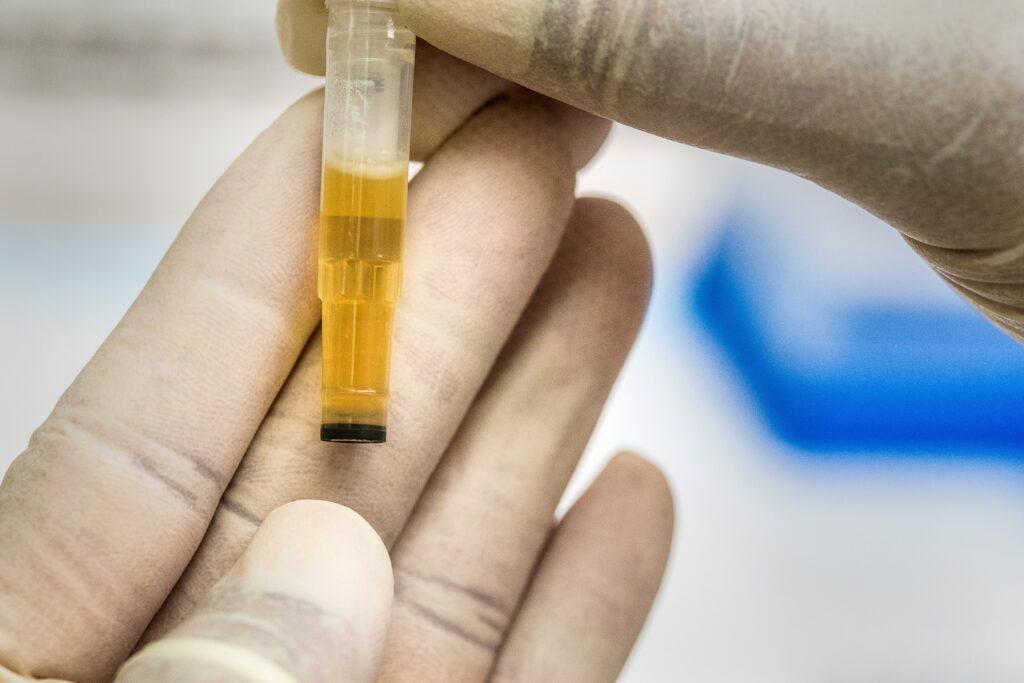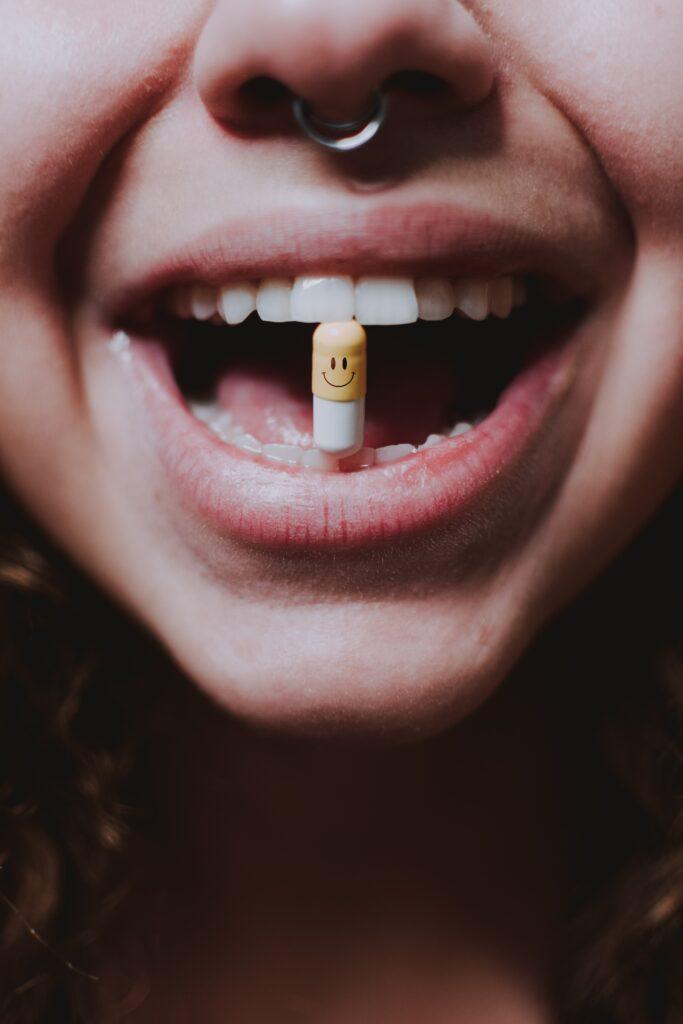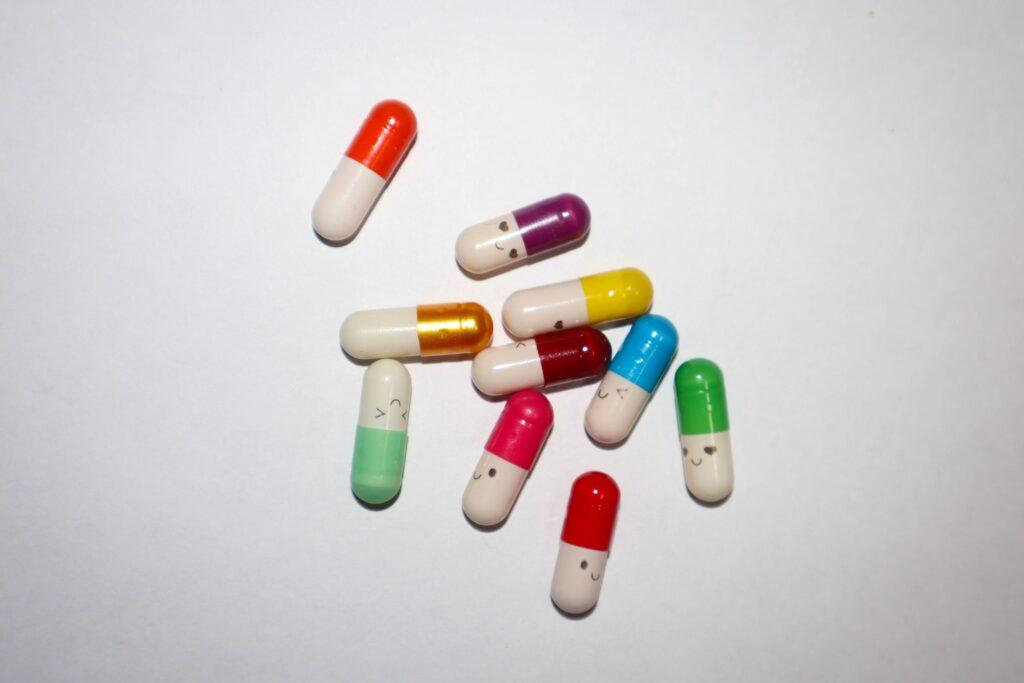How Long Does Molly Stay In Your Urine?
Understanding how long Molly (MDMA) remains detectable in urine is crucial, whether you’re navigating drug tests for employment, legal matters, or simply pursuing a healthier lifestyle post-recovery. The duration that Molly stays in your urine is influenced by a combination of factors, including usage patterns, individual metabolism, hydration levels, and the sensitivity of the urine test.
- Average Detection Window: 2 to 4 Days On average, Molly can be detected in urine for around 2 to 4 days after ingestion. This timeframe is a general estimate and can vary widely among individuals. Factors like the frequency and amount of use play a significant role. Molly might be eliminated from the system relatively quickly for occasional users who take a single dose, often within a few days.
- Variability Among Users: Frequent or heavy users might experience a longer detection window. This is due to the cumulative effect of the drug in their system. The body’s ability to metabolize and eliminate the drug also differs from person to person, making the detection period less predictable.
- Metabolism Matters: Metabolism plays a pivotal role in drug clearance. Individuals with faster metabolisms typically eliminate substances like MDMA more quickly. Age, genetics, and overall health can influence metabolism rates. Additionally, individual body composition, including factors like weight and body fat percentage, can contribute to the variability in how long Molly remains detectable.
- Hydration and Urine pH: Hydration levels impact the concentration of drugs in urine. Drinking ample water can potentially dilute the concentration of Molly and other substances, affecting their detectability. Similarly, the pH level of urine can influence how long the drug remains in the system. Changes in urine pH, influenced by diet and other factors, can alter the rate at which the body eliminates the drug.
- Types of Drug Tests: Different drug tests have varying detection windows. While urine tests are commonly used for ease and affordability, other tests like hair follicle tests and blood tests can detect drug use over more extended periods. Hair tests, for instance, can identify drug use for months after ingestion.
As you navigate the complexities of drug testing and recovery, it’s essential to remember that Molly’s presence in urine is a temporary aspect of the journey.
Focusing on long-term recovery, positive lifestyle choices, and seeking support from medical professionals and counselors can empower you to overcome challenges and lead a healthier, drug-free life.
If you’re concerned about specific detection timelines, it’s advisable to consult with experts who can provide personalized guidance based on your unique circumstances.
How Long Does Mdma Stay In Urine During Pregnancy?
The duration that MDMA (commonly known as Molly) stays in urine during pregnancy can be influenced by various factors, similar to the general population. However, it’s important to note that drug use during pregnancy can have significant implications for both the mother and the developing fetus.
The body metabolizes MDMA, and is eventually eliminated through urine. The factors affecting the detection window of MDMA in urine during pregnancy are similar to those outside of pregnancy, including frequency and amount of use, individual metabolism, hydration levels, and the sensitivity of the urine test.

Skip To:
Learn More:
Get Help. Get Better. Get Your Life Back.
Searching for Accredited Drug and Alcohol Rehab Centers Near You?
Even if you have failed previously and relapsed, or are in the middle of a difficult crisis, we stand ready to support you. Our trusted behavioral health specialists will not give up on you. When you feel ready or just want someone to speak to about therapy alternatives to change your life call us. Even if we cannot assist you, we will lead you to wherever you can get support. There is no obligation. Call our hotline today.
(844) 597-1011How Long Does Molly Stay In Your Urine? Popular FAQs
-
Can You Be Fired For Having MDMA In Urine?
Yes, it’s possible to be fired for having MDMA in your urine, especially if your employer has a strict drug-free workplace policy. Many employers conduct drug tests as a part of their employment policies, and if you test positive for illegal substances like MDMA, it can lead to termination or disciplinary actions. Knowing your company’s drug-use policies and making informed decisions to ensure your job security is essential.
-
Is an MDMA Urine Test Safe?
Yes, an MDMA urine test is generally considered safe. It’s a non-invasive procedure that involves providing a urine sample for analysis. The test itself doesn’t pose any physical harm to your body. However, it’s essential to be aware of the potential consequences of the test results, such as legal or employment implications, depending on the context in which the test is conducted. If you have concerns about the test or its potential outcomes, it’s advisable to seek guidance from relevant professionals before undergoing the test.
-
Why Is Molly In Urine?
Molly or its metabolites in urine result from this metabolic breakdown. During this process, enzymes in the liver chemically modify MDMA, converting it into different substances that are more water-soluble and easier for the body to eliminate. The metabolites are then filtered by the kidneys and excreted through urine.
How Long Does Molly Stay In Your Urine? MDMA Factsheet
What is Molly?
Molly is a colloquial term for MDMA (3,4-methylenedioxymethamphetamine), a synthetic psychoactive substance known for its empathogenic and stimulant effects. It’s often used recreationally for its ability to enhance mood, increase feelings of emotional closeness, and heighten sensory experiences.
Molly Overdose Symptoms
- Urine Tests: Commonly used for convenience and accessibility, urine tests can detect MDMA within 2 to 4 days of use. They are widely used for drug screening and are suitable for detecting recent use.
- Blood Tests: Offering a shorter detection window of 1 to 2 days, blood tests are valuable for confirming recent MDMA consumption. They are often employed in situations requiring immediate or recent use verification, such as accidents or emergencies.
- Saliva Tests: Similar to blood tests, saliva tests can detect MDMA within 1 to 2 days of use. Their non-invasive nature makes them advantageous, and is used in scenarios where recent use confirmation is needed.
- Hair Tests: Hair tests provide the most extended detection window, potentially identifying MDMA use for up to 90 days or more. These tests analyze hair strands for metabolites, making them suitable for assessing long-term drug history.
These diverse drug tests serve medical, legal, and workplace purposes, contributing to a comprehensive understanding of an individual’s MDMA consumption patterns and history.
Molly Addiction Signs
Signs of potential Molly (MDMA) addiction can manifest physically and behaviorally. While not everyone who uses MDMA will become addicted, it’s essential to be aware of these signs if you or someone you know is using the substance regularly:
- Craving and Obsession: Individuals addicted to Molly often crave the drug, and their thoughts may be consumed by obtaining and using it.
- Increased Tolerance: Over time, regular MDMA use can lead to the body requiring higher doses to achieve the desired effects, indicating the development of tolerance.
- Failed Attempts to Cut Down: Someone with a potential Molly addiction might struggle to reduce or control their use, even if they desire to.
- Withdrawal Symptoms: When not using Molly, individuals addicted to it might experience withdrawal symptoms such as mood swings, fatigue, depression, anxiety, and difficulty concentrating.
- Neglecting Responsibilities: Addiction can lead to neglecting responsibilities at work, school, or home due to preoccupation with obtaining and using the drug.
- Loss of Interest: People addicted to Molly may lose interest in activities they previously enjoyed as their focus shifts primarily to drug use.
- Continued Use Despite Consequences: Even when faced with negative consequences like health issues, strained relationships, or legal problems, those struggling with addiction might continue to use Molly.
MDMA Addiction Statistics
These statistics collectively emphasize MDMA use within different segments of the U.S. population and the potential consequences of its misuse or addiction.
1.1 million
Around 1.1 million people aged 12 and older in the United States reported using MDMA (Ecstasy or Molly) in 2018.
Source: NSDUH
4.4%
About 4.4% of college students in the U.S. reported using MDMA in 2019.
Source: Monitoring the Future Survey
22,949
There were approximately 22,949 emergency department visits related to MDMA use in 2011.
Source: DAWN

Get Your Life Back
Find Hope & Recovery. Get Safe Comfortable Detox, Addiction Rehab & Dual Diagnosis High-Quality Care.
Hotline(844) 597-1011
How Does Molly Show Up In A Urine Test?
Molly, which is another term for MDMA, can be detected in a urine test through the presence of its metabolites. When you consume MDMA, your body metabolizes it into various compounds as it processes the drug.
These metabolites are what a urine test looks for to determine whether you’ve used MDMA. The primary metabolite that is commonly tested for in MDMA urine screenings is called “3,4-methylenedioxymethamphetamine” or “MDMA-9G.”
Urine tests typically involve immunoassay techniques that use antibodies to detect MDMA and its metabolites in urine samples specifically. If the initial immunoassay result is positive, a confirmation test using more specific methods like gas chromatography-mass spectrometry (GC-MS) or liquid chromatography-mass spectrometry (LC-MS) is often conducted to confirm the presence of MDMA or its metabolites and rule out any potential false positives.
The detection window for MDMA in urine can vary based on factors such as frequency and amount of use, individual metabolism, and the test’s sensitivity. While urine tests can detect recent MDMA use, they might not be able to identify use that occurred more than a few days prior.
Suppose you’re concerned about drug testing for MDMA. In that case, whether for employment purposes or other reasons, it’s advisable to be aware of your rights, understand your employer’s policies, and make informed decisions accordingly.
First-class Facilities & Amenities
World-class High-Quality Addiction & Mental Health Rehabilitation Treatment
Rehab Centers TourRenowned Addiction Centers. Serene Private Facilities. Inpatient rehab programs vary.
Addiction Helpline(844) 597-1011Proven recovery success experience, backed by a Team w/ History of:
15+
Years of Unified Experience
100s
5-Star Reviews Across Our Centers
10K
Recovery Success Stories Across Our Network
- Low Patient to Therapist Ratio
- Onsite Medical Detox Center
- Comprehensive Dual-Diagnosis Treatment
- Complimentary Family & Alumni Programs
- Coaching, Recovery & Personal Development Events
Molly Addiction Treatment
Welcome to We Level Up Treatment Center, where we are dedicated to providing comprehensive and compassionate care for individuals seeking help with Molly addiction. Our specialized treatment approach is designed to address the unique challenges posed by Molly addiction, offering a range of services tailored to promote recovery, healing, and lasting transformation.
- Personalized Assessment: We begin your journey with a thorough assessment conducted by our experienced addiction specialists. This evaluation helps us understand your specific needs, challenges, and goals, allowing us to create a personalized treatment plan that suits you best.
- Medical Detoxification: If needed, we provide medically supervised detoxification to ensure a safe and comfortable withdrawal from Molly. Our medical team is here to manage discomfort and ensure your physical well-being.

- Individual Counseling: Our licensed therapists conduct one-on-one counseling sessions to address the psychological and emotional aspects of Molly addiction. Through evidence-based therapies, such as cognitive-behavioral therapy (CBT) and motivational interviewing, we help you develop coping skills, manage triggers, and cultivate a positive mindset.
- Group Therapy: Participate in group therapy sessions to connect with others with similar struggles. Group therapy provides a supportive environment where you can share experiences, gain insights, and develop valuable interpersonal skills.
- Dual Diagnosis Treatment: We understand that addiction often coexists with mental health disorders. Our expert clinicians are equipped to address dual-diagnosis cases, providing integrated treatment for addiction and any underlying mental health concerns.
- Holistic Therapies: Embrace holistic healing through mindfulness meditation, yoga, art therapy, and recreational therapy. These practices promote emotional balance, stress reduction, and overall well-being.
- Family Involvement: We recognize the importance of family support. Through family therapy sessions and educational programs, we involve your loved ones in recovery, fostering understanding, communication, and a supportive environment for lasting change.
- Life Skills Development: Acquire essential life skills that empower you to navigate challenges beyond treatment. Our life skills workshops cover communication, time management, goal-setting, and relapse prevention.
- Aftercare Planning: Your recovery journey continues beyond your time at We Level Up. We work closely with you to create a comprehensive aftercare plan that includes relapse prevention strategies, ongoing therapy, and support groups to help you maintain your sobriety.
- Continuum of Care: As your needs evolve, our treatment adapts accordingly. We provide a continuum of care, offering various levels of support, including outpatient services, to ensure your long-term success.
World-class, Accredited, 5-Star Reviewed, Effective Addiction & Mental Health Programs. Complete Behavioral Health Inpatient Rehab, Detox plus Co-occuring Disorders Therapy.
CALL(844) 597-1011End the Addiction Pain. End the Emotional Rollercoaster. Get Your Life Back. Start Drug, Alcohol & Dual Diagnosis Mental Health Treatment Now. Get Free No-obligation Guidance by Substance Abuse Specialists Who Understand Addiction & Mental Health Recovery & Know How to Help.
How Long Does Molly Stay In Your Urine? We Level Up Molly Addiction Treatment Near Me
At We Level Up Treatment Center, our commitment lies in delivering compassionate and comprehensive rehab programs for MDMA addiction recovery. Our customized services tackle the unique challenges posed by MDMA use, offering specialized care for every individual’s healing journey.
Led by skilled medical professionals, therapists, and counselors, our center provides a nurturing space for evidence-based therapies, individual and group counseling, and holistic approaches. We address the physical, emotional, and psychological dimensions of MDMA addiction. Through personalized plans, we promote self-discovery, equipping clients with coping skills, relapse prevention strategies, and ways to navigate MDMA-related triggers.
Recognizing the need for holistic healing, our services encompass detoxification, medical oversight, psychoeducation, family therapy, and aftercare planning. At We Level Up, we guide individuals step by step, empowering them to overcome MDMA addiction, rekindle hope, and rediscover a future of fulfillment.
Experience Transformative Recovery at We Level Up Treatment Centers.
See our authentic success stories. Get inspired. Get the help you deserve.
Start a New Life
Begin with a free call to an addiction & behavioral health treatment advisor. Learn more about our dual-diagnosis programs. The We Level Up Treatment Center Network delivers recovery programs that vary by each treatment facility. Call to learn more.
- Personalized Care
- Caring Accountable Staff
- World-class Amenities
- Licensed & Accredited
- Renowned w/ 100s 5-Star Reviews
We’ll Call You
How Long Does Molly Stay In Your Urine? Watch The Drug Addiction Informative Video
Video Script
Joey’s Opiates, Drugs, and Alcohol Addiction Recovery Story
Joey’s story is a sad reminder of the harsh reality of addiction. He faced significant challenges in his recovery journey after losing his son, but his progress toward sobriety has been inspiring. The crucial first step for Joey was seeking help for his addiction, and he deserves all the necessary support to aid his recovery process.
Search We Level Up How Long Does Molly Stay In Your Urine? Resources
Sources
- National Institute on Drug Abuse (NIDA) – MDMA (Ecstasy/Molly): https://www.drugabuse.gov/drug-topics/mdma-ecstasymolly
- Substance Abuse and Mental Health Services Administration (SAMHSA) – MDMA (Ecstasy/Molly) Information: https://www.samhsa.gov/find-help/atod
- Drug Enforcement Administration (DEA) – MDMA: https://www.dea.gov/
- National Institute on Drug Abuse (NIDA) – DrugFacts: MDMA (Ecstasy/Molly): https://www.drugabuse.gov/publications/drugfacts/mdma-ecstasymolly
- Centers for Disease Control and Prevention (CDC) – MDMA (Ecstasy/Molly) Use and Its Effects: https://www.cdc.gov/nchs/nvss/vsrr/drug-overdose-data.htm
- National Institute on Drug Abuse (NIDA) – Commonly Abused Drug Charts: https://www.drugabuse.gov/drug-topics/commonly-abused-drugs-charts
- National Institute on Drug Abuse (NIDA) – Principles of Drug Addiction Treatment: A Research-Based Guide: https://www.drugabuse.gov/publications/principles-drug-addiction-treatment-research-based-guide-third-edition
- Substance Abuse and Mental Health Services Administration (SAMHSA) – Behavioral Health Treatment Services Locator: https://findtreatment.samhsa.gov/
- Drug Enforcement Administration (DEA) – Drug Fact Sheet: MDMA (Ecstasy): https://www.dea.gov/
- Centers for Disease Control and Prevention (CDC) – National Vital Statistics System – Drug Overdose Data: https://www.cdc.gov/nchs/nvss/vsrr/drug-overdose-data.htm


